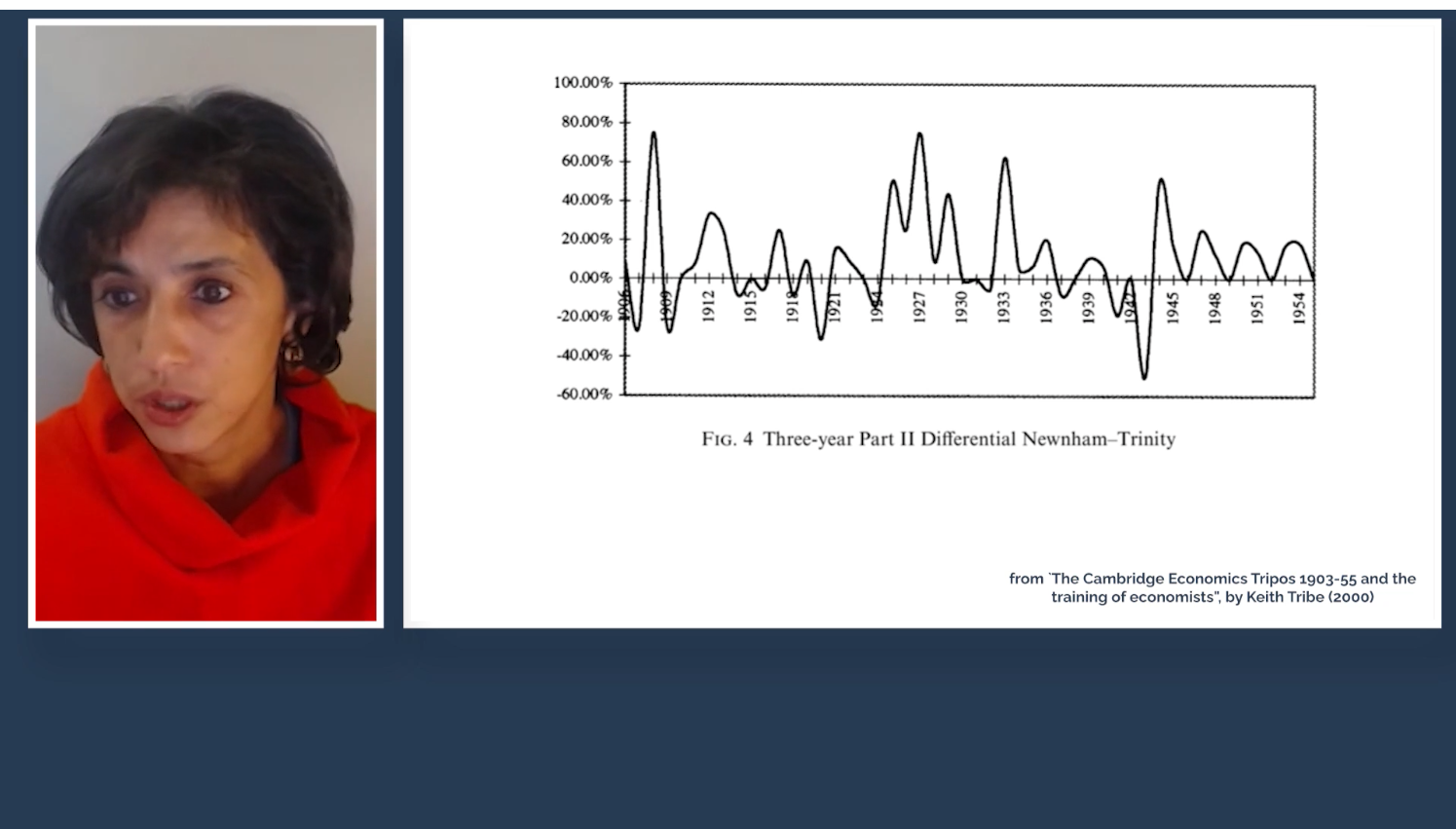EGC’s Penny Goldberg and Rohini Pande speak at the 2021 Congress of the European Economic Association
The economists presented their research on gendered labor force participation, demand-side constraints, and new visions for development.
Rohini Pande, the Henry J. Heinz II Professor of Economics and Director of the EGC, presented the 2021 Marshall Lecture, asking the question: “how do gender roles that restrict women to the private sphere sustain themselves?” Pande’s topic derived from the title of the lecture series itself. Mary Paley Marshall (1850-1944) was the first female lecturer of economics at Cambridge and half of the first “professional couple” in economics: her husband Alfred Marshall, for whom the lecture was named. While initially a proponent of women’s education, by 1896, Alfred Marshall had exerted significant energy and resources to fight the admission of women to Cambridge, arguing that “when jobs are scarce, men should have more right to a job than women”, and that “a university education is more important for a boy than a girl”.
Pande used Alfred Marshall’s story –from avid supporter to bitter opponent of women’s education – to situate a broader exploration of the norms that place the labors and behaviors of men and women into separate spheres. Rooted in the institution of marriage, these norms are reaffirmed in key moments of transition for the structure of the labor force, as when new employment becomes available, or when the competition for those jobs increases. The norm of the man as head-of-household justifies laws that impede women’s participation in the labor force, both legislation that actively discriminates against female workers and that which fails to provide protections against discrimination. Men are also, subsequently, preferred candidates for high-paid work.
Cambridge would not begin awarding women degrees until 1948, and the Cambridge economics department of today lacks any women in full-professor positions. Pande’s conclusion emphasizes that change in women’s participation in the labor market will occur most effectively when labor within the home is acknowledged as unwaged labor. The legal and political structures that preserve separate spheres economically benefit only men, who are, as in the case of Marshall, often the beneficiaries of the unpaid and unrecognized labor of women.
